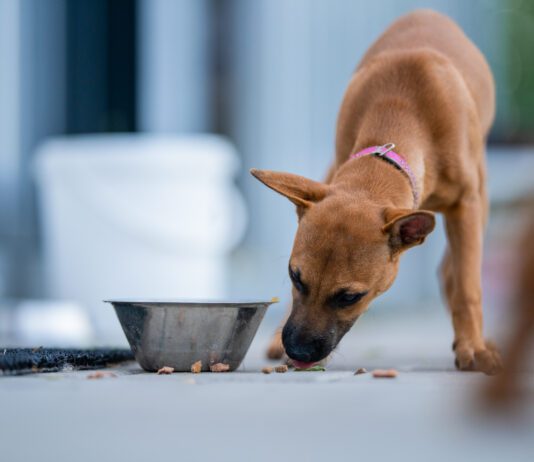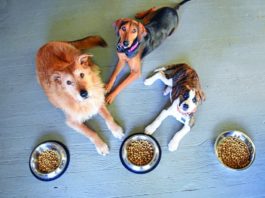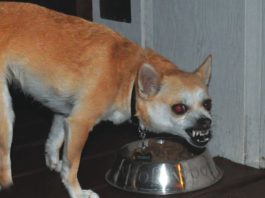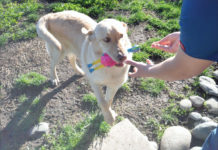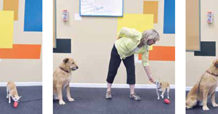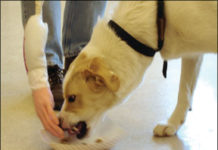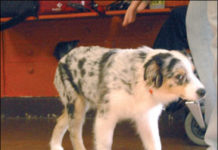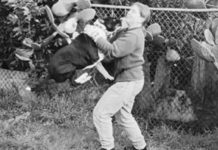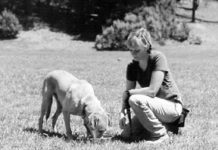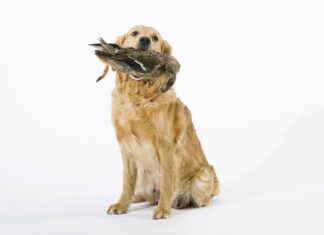Trading With Your Dog to Combat Resource Guarding
It's important to be able to ask your dog to give something to you, especially something he is not supposed to have, and especially if you're frequenting public places where he might pick something that belongs to someone else or that might be harmful to him. If you only take things away that are forbidden to him, he'll learn to play the keep-away game, or worse, he may learn to resource-guard. The trade" game will help you avoid these problems."
How to Manage Your Resource-Guarding Dog
high-value treat. Peanut (Dog A
Unwanted Dog Food Guarding Behavior
Canine resource guarding may be a natural, normal dog behavior, but it’s alarming when your own dog growls – or worse, snaps – at you over his resource. Resist your first impulse to snap back at your dog. Whatever you did that caused your dog to growl, stop doing it. Immediately. If you were walking toward him, stand still. If you were reaching toward him, stop reaching. If you were trying to take the toy or bone away from him, stop trying. Your next action depends on your lightning-fast analysis of the situation. If your dog is about to bite you, retreat. Quickly. If you’re confident he won’t escalate, stay still. If you aren’t sure, retreat.
Dog Growling: 5 Steps to Help Your Dog
Growling is a valuable means of communication for a dog something that dog owners should appreciate and respect rather than punish. Of course, we don't want our dog to growl at us, but neither do we want him to fail to growl if something makes him uncomfortable; that's very important information in a successful canine-human relationship. It's very common for dog owners to punish their dogs for growling. Unfortunately, this often suppresses the growl eliminating his ability to warn us that he's about to snap, literally and figuratively. On other occasions, punishing a growling, uncomfortable dog can induce him to escalate into full-on aggression.
Causes of Reactive Dog Behavior and How to Train A Reactive Dog
“Reactive” is a term gaining popularity in dog training circles – but what is it, exactly? In her book Clinical Behavioral Medicine for Small Animals, Applied Animal Behaviorist Karen Overall, M.A., V.M.D., Ph.D., uses the term to describe animals who respond to normal stimuli with an abnormal (higher-than-normal) level of intensity. Take a deep breath and relax. We have positive training solutions for dogs who "go off" or "lose it" in certain circumstances.
Living with a Difficult Dog
By your own standards, your dog’s life may not seem all that stressful – after all, he doesn’t have bills to pay, does he? But when you apply the more scientific definition of the word – anything that alarms or excites him, triggering his sympathetic nervous system into action and flooding him with the “fight or flight” chemicals adrenaline and noradrenaline – you may be able to see how many seemingly unrelated things in his environment actually contribute to his “misbehavior.”
Upper-Level Management
Garbage-raiding, counter-surfing, barking at passers-by ... How do you train your dog to stop his bad behavior? Often, the answer isn’t a matter of training at all!
Eliminate Aggressive Dog Guarding Behaviors
It’s most common for dogs to defend their food, but edible items are not the only things that dogs will keep from all potential rivals. Some dogs will defend their “ownership” of toys, a favored place to sleep, or the water bowl. Behaviorists and dog trainers call these protective behaviors “resource guarding.” A dog who defends his food from other dogs is exhibiting a perfectly normal and appropriate canine behavior. In the wild, where food supply equals life, the dog who gives up his food easily has a poor chance for survival. Resource guarding is far less acceptable, of course, when it’s directed toward us.


